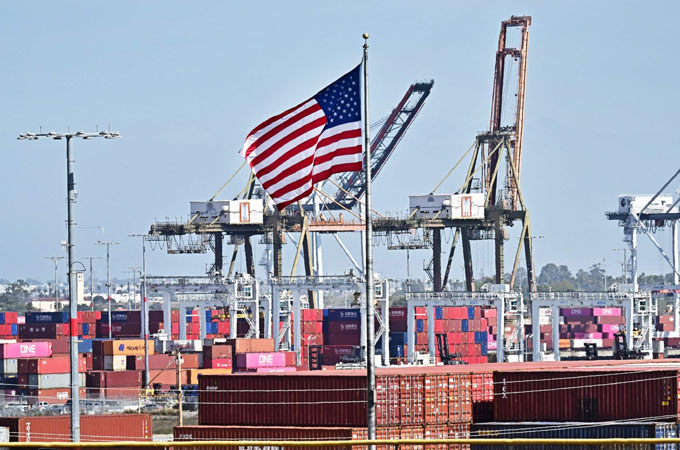A dramatic escalation in trade protectionism by the US is significantly impacting Arab economies, placing $22 billion in non-oil exports at risk, according to a policy brief issued today (April 19) by the United Nations Economic and Social Commission for Western Asia (ESCWA).
Total Arab exports to the US declined from $91 billion in 2013 to $48 billion in 2024 - largely due to reduced US crude oil imports.
Yet non-oil exports nearly doubled over the same period, climbing from $14 billion to $22 billion, with sectors like textiles, chemicals, aluminum, fertilizers, and electronics driving the growth. That progress is now under serious threat.
Jordan is the most exposed, with nearly 25% of its total exports destined for the US. Bahrain, heavily reliant on aluminum and chemical exports to the American market, is also flagged for heightened risk, said the report.
Meanwhile, the UAE too faces disruptions to an estimated $10 billion in US-bound re-exports due to tariffs levied on goods originating from third countries.
ESCWA also pointed out that GCC economies are facing a recent sharp drop in global oil prices, which is further straining fiscal revenues and testing the resilience of Gulf economies reliant on hydrocarbon exports.
The financial implications are also significant, it stated in the report.
ESCWA estimates that Egypt, Morocco, Jordan, and Tunisia will pay $114 million more in sovereign interest payments in 2025 due to rising bond yields linked to global investor uncertainty. This increase in borrowing costs threatens to constrain national budgets and delay development spending.
On the demand side, reduced imports from major global partners such as the European Union and China are likely to add pressure, it stated.
The EU currently absorbs 72% of Tunisia’s exports and 68% of Morocco’s, while China imports 22% of GCC oil and chemical exports.
"Despite the pressures, there is an opportunity here to accelerate structural reforms and deepen resilience," remarked ESCWA Executive Secretary Rola Dashti. "The region is at a strategic inflection point," she added.
Despite the headwinds, ESCWA highlights potential opportunities for trade diversion.
Egypt and Morocco could gain US market share as higher tariffs on Chinese and Indian goods make Arab exports more competitive - although the recent 90-day tariff pause (excluding China) may limit the scale of that effect.
To navigate the crisis, ESCWA in its brief has urged Arab countries to accelerate regional integration.
It recommends advancing the Pan-Arab Free Trade Area, implementing the GCC Customs Union, and expanding cooperation under the Agadir Agreement.
It also calls for renewed investment in logistics infrastructure and regulatory reforms to reposition Arab countries within global value chains, she added.-TradeArabia News Service































